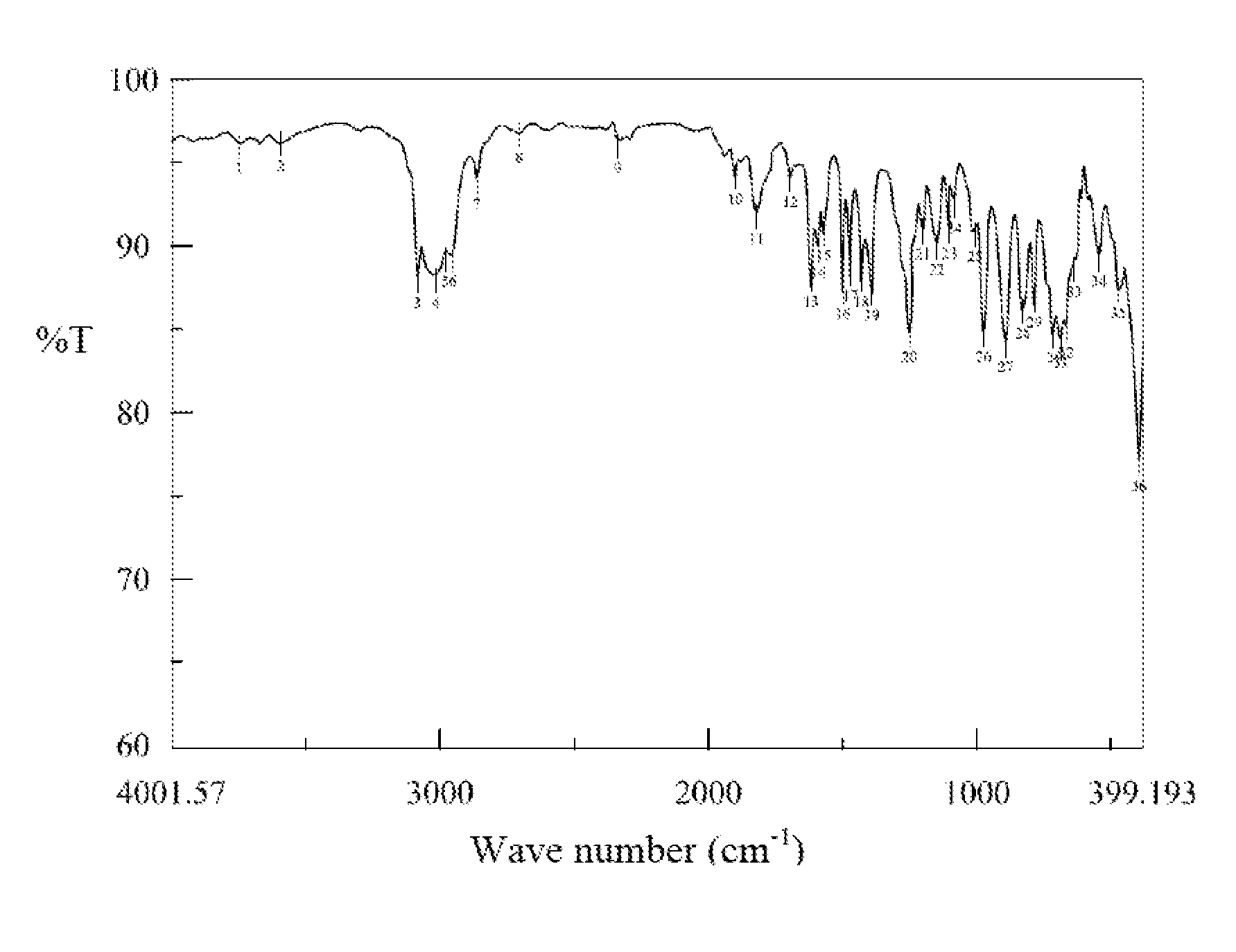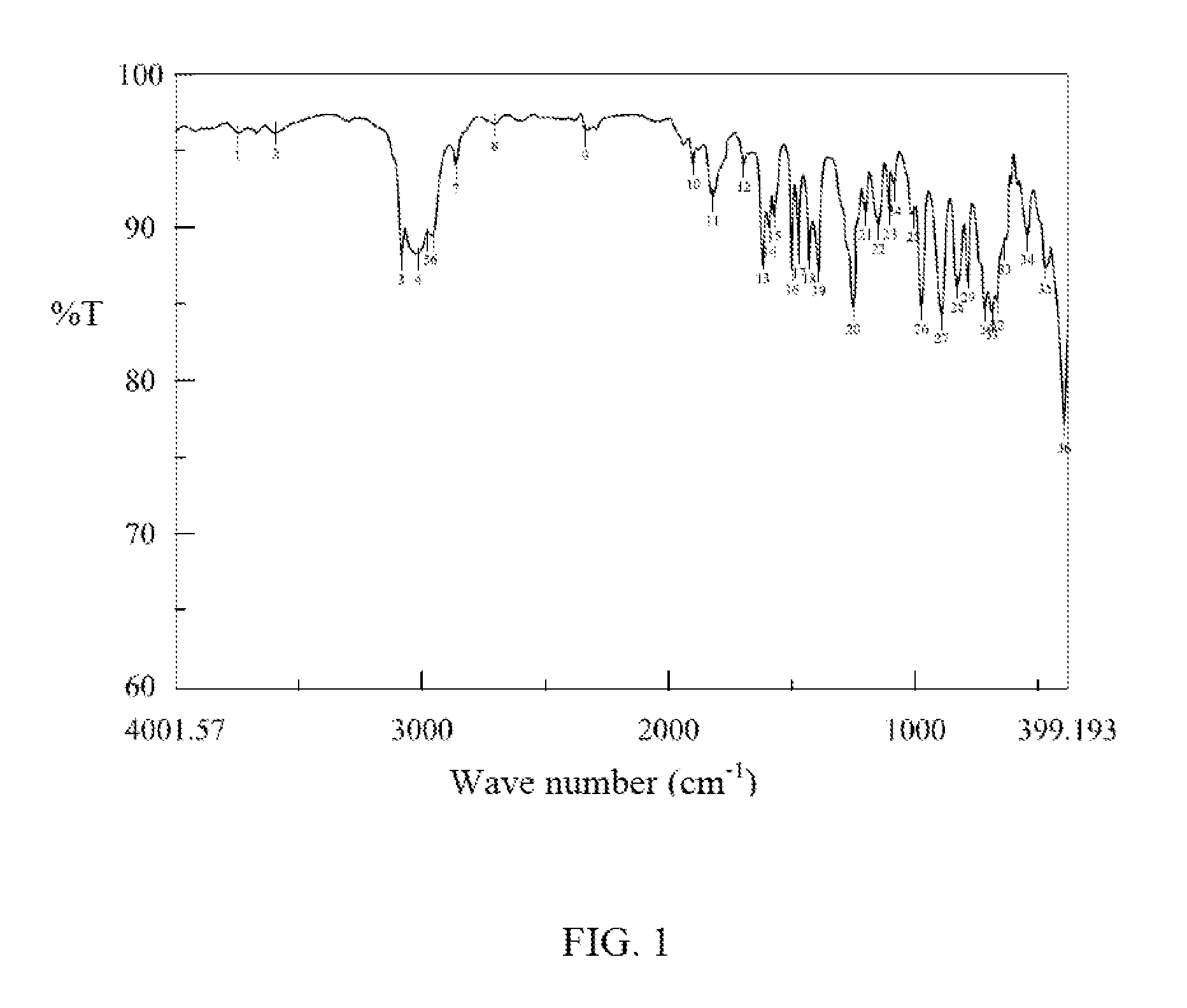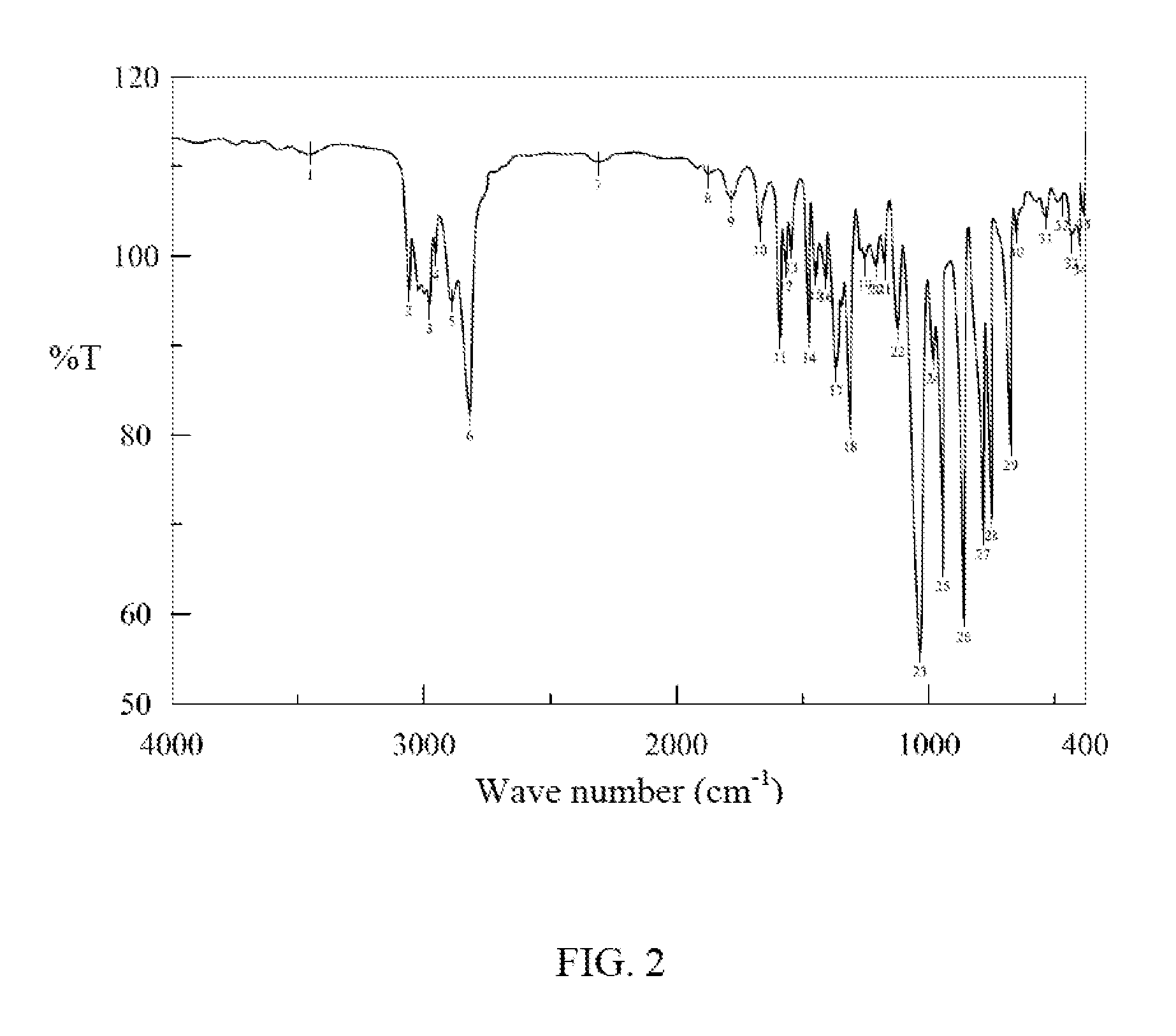Low dissipation factor resin composition and product made thereby
a technology of dissipation factor and resin composition, which is applied in the field of low dissipation factor resin composition, can solve the problems of difficult to achieve low dissipation factor (df) of such resin compositions, and achieve the effect of low dissipation factor and high frequency
- Summary
- Abstract
- Description
- Claims
- Application Information
AI Technical Summary
Benefits of technology
Problems solved by technology
Method used
Image
Examples
preparatory example 1
[0168]One approach for preparing the bis(vinylbenzyl) ether compound (BVBE) is described below.
[0169]Add 10 g of chloro-methyl styrene (CMS, i.e. 4-chloro-methyl styrene (CMS-P), mixture of isomers:para / meta=7:3) and 150 ml of deionized water into a reaction tank and then stir at a temperature of 50 to 90° C. Add 12 g of potassium hydroxide and 0.5 g of N-methyl-N,N,N-trioctyloctan-1-ammonium chloride and keep stirring for 4 hours, followed by washing with toluene to obtain an orange liquid solution containing bis(vinylbenzyl) ether resin with molecular weight Mw<1000 and toluene.
[0170]Examine and analyze the bis(vinylbenzyl) ether compound with FTIR to obtain the result as shown in the accompanying figures.
[0171]FIG. 1 is the FTIR result of CMS-P, and FIG. 2 is the FTIR result of the bis(vinylbenzyl) ether compound, both as tabulated below. The comparison of the two figures illustrates that the reaction product bis(vinylbenzyl) ether compound has an increased characteristic peak at...
preparatory example 2
[0174]Heat 45 g of the bis(vinylbenzyl) ether compound and 30 g of BMI-2300 (bismaleimide resin) and control the melting temperature between 100 and 150° C. Lower the temperature after BMI and the bis(vinylbenzyl) ether compound have formed a uniform solution. At a temperature of 50° C., add 100 g of vinyl-benzylated polyphenylene oxide resin and about 50 g of toluene, followed by stirring. A uniform compound (Compound A) was formed at the room temperature, which has a solid content of 65%.
[0175]Preparation of DPPO Derivative
[0176]Mix and stir 206 g of diphenylphosphine oxide (DPPO), 90 g of dichloro-p-xylene and 1200 g of 1,2-dichlorobenzene. Heat the reaction mixture in nitrogen atmosphere at 160° C. for 12 to 24 hours. Cool to the room temperature and filter, followed by drying under vacuum to obtain the phosphorous flame retardant of formula (IV) as white powder with a phosphorous content about 12%.
[0177]The resin composition of each embodiment and the laminate properties thereo...
PUM
| Property | Measurement | Unit |
|---|---|---|
| temperature | aaaaa | aaaaa |
| melting temperature | aaaaa | aaaaa |
| melting temperature | aaaaa | aaaaa |
Abstract
Description
Claims
Application Information
 Login to View More
Login to View More - R&D
- Intellectual Property
- Life Sciences
- Materials
- Tech Scout
- Unparalleled Data Quality
- Higher Quality Content
- 60% Fewer Hallucinations
Browse by: Latest US Patents, China's latest patents, Technical Efficacy Thesaurus, Application Domain, Technology Topic, Popular Technical Reports.
© 2025 PatSnap. All rights reserved.Legal|Privacy policy|Modern Slavery Act Transparency Statement|Sitemap|About US| Contact US: help@patsnap.com



